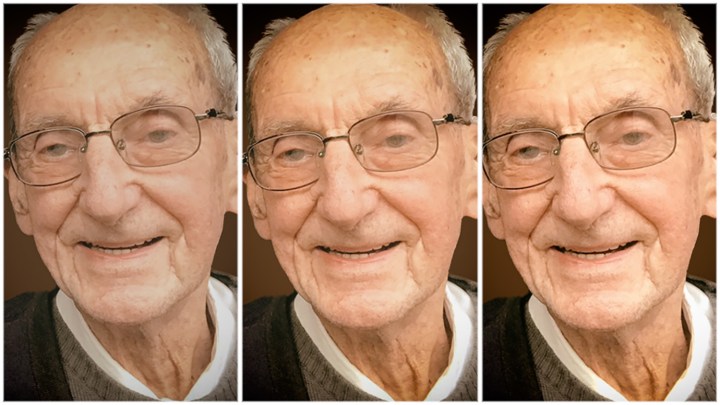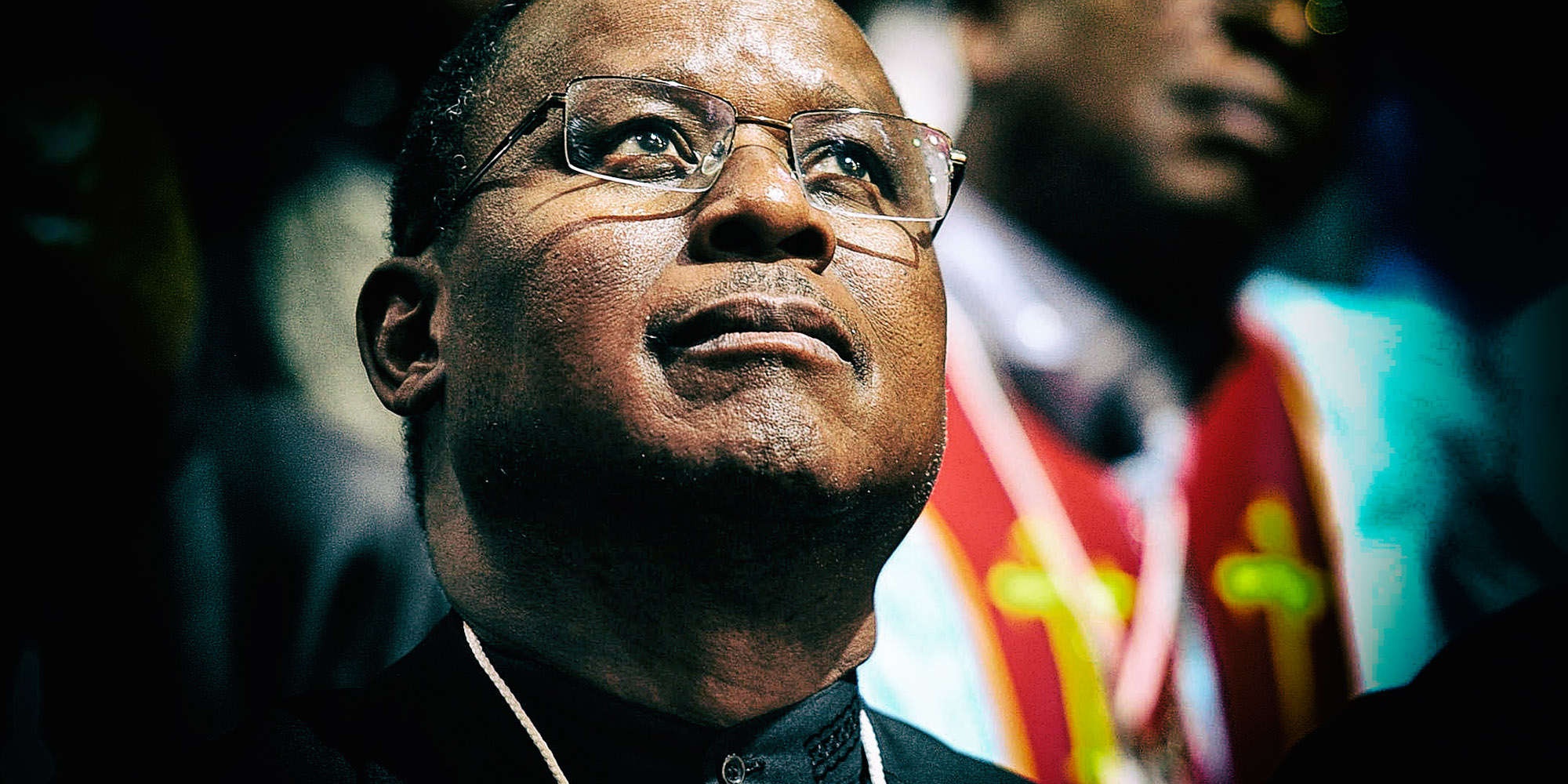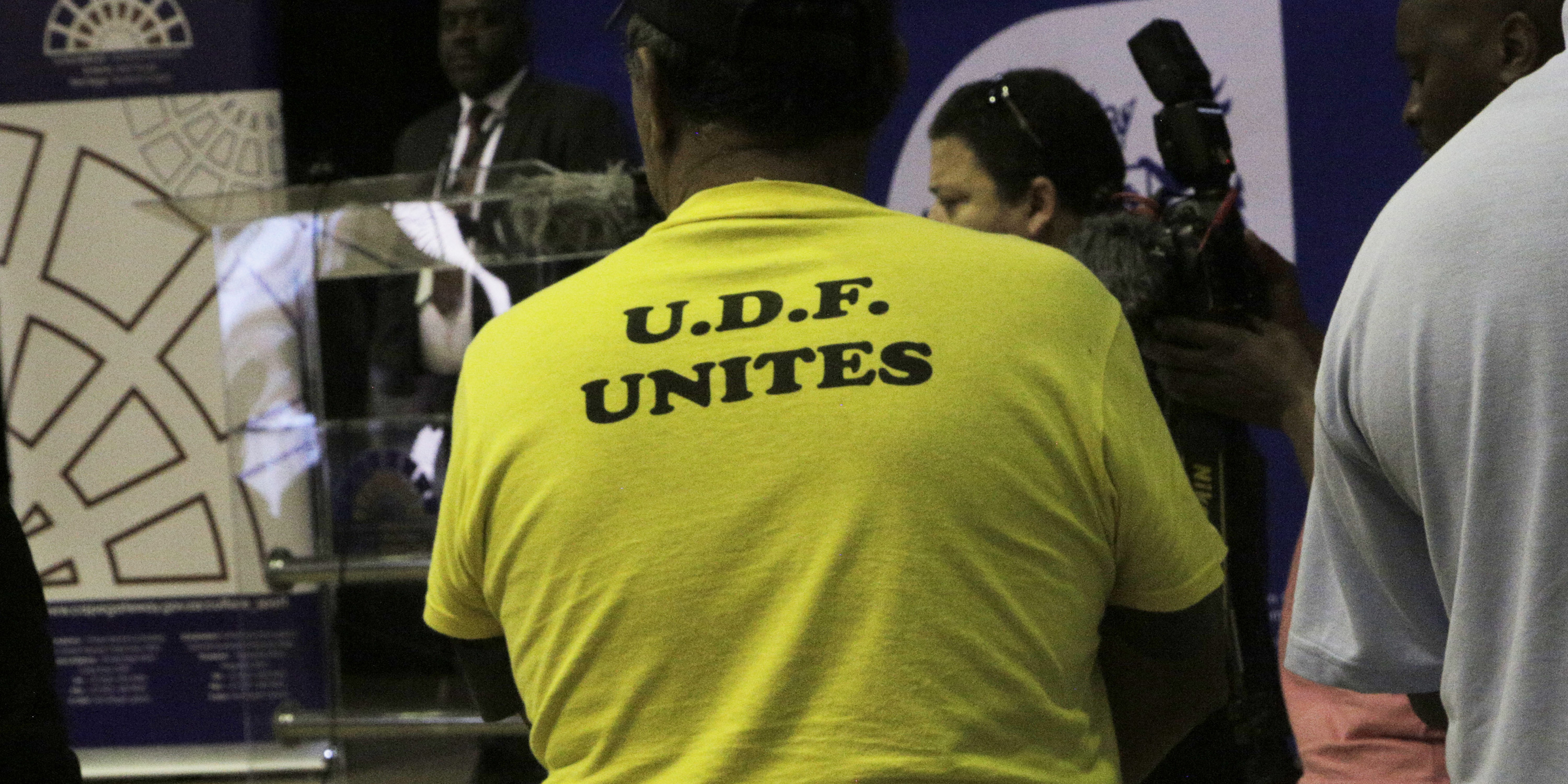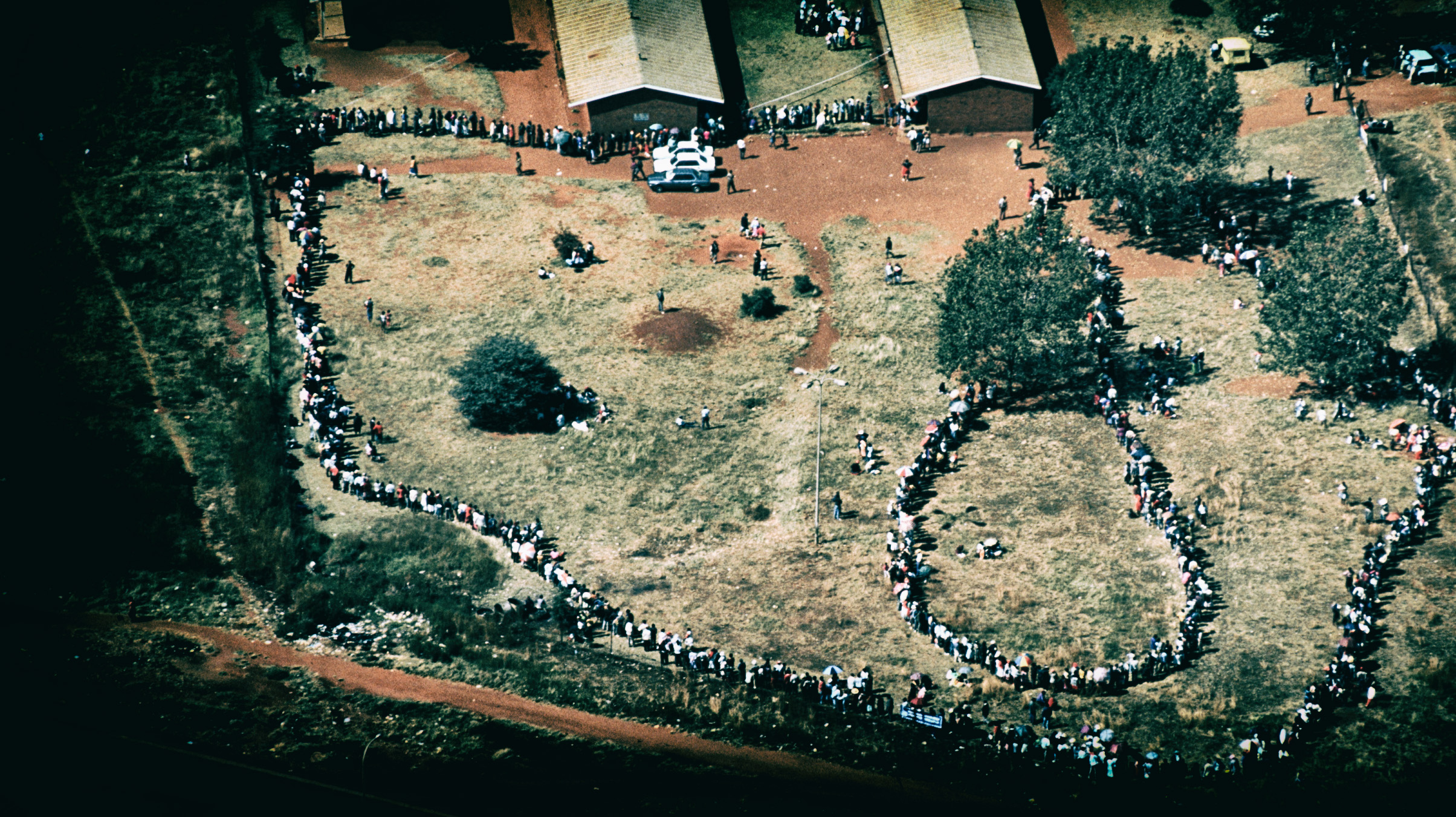OBITUARY
Father Albert Nolan – priest, anti-apartheid activist, author and renowned theologian

Well-known South African Catholic priest, anti-apartheid activist and internationally renowned theologian and author Father Albert Nolan has died at the age of 88.
Born in Cape Town in 1934, Fr Albert Nolan entered the Dominican Order of the Catholic Church in 1954 and died peacefully in his sleep under the care of the Dominican Sisters at Marian House in Boksburg in the early hours of Monday, 17 October.
Awarded the Order of Luthuli in Silver by then president Thabo Mbeki in 2003 for his “lifelong dedication to the Struggle for democracy, human rights and justice and for challenging the religious ‘dogma’, especially the theological justification for apartheid”, Nolan inspired a generation of Christian activists and theologians.
His dedication to the anti-apartheid struggle saw him decline the prestigious role of Master of the Dominican Order, to which he was elected in 1983, as it would have meant him being transferred to the Order’s Rome headquarters. Instead, he convinced the Dominicans to allow him to remain in South Africa.
At the height of the second State of Emergency in 1986, he was forced into hiding to escape from the notorious South African Security Police. Nolan was particularly vulnerable to arrest for steering the drafting process of the Kairos Document in mid-1985, which arose primarily from the work of grassroots theologians in Soweto and Johannesburg, but which he and Reverend Frank Chikane of the Institute for Contextual Theology (ICT) played a central role in editing.

Reveren Frank Chikane on March 14, 2015 in Rustenburg, South Africa. (Photo: Gallo Images / Sowetan / Thulani Mbele)
Described as a “theology from below”, the document critiqued the role of the churches in apartheid South Africa, dismantled any theological justification for racism and totalitarianism and proposed instead a “prophetic theology” akin to Liberation Theology.
From 1973 to 1980, he served as national chaplain for the National Catholic Federation of Students (NCFS) and also, until 1980, for the Catholic Students Association (Casa), which was formed in 1976 after black students began organising themselves into separate formations as Black Consciousness flourished.
In 1977, Nolan was instrumental in establishing Young Christian Students (YCS) in South Africa after he attended an International Movement of Catholic Students gathering in Lima, Peru, in 1975 where he was introduced to the See-Judge-Act method of social analysis and was inspired by Gustavo Gutiérrez, who later also became a Dominican and who is regarded as one of the pioneers of Liberation Theology.
From 1977 to 1984, Nolan served as national chaplain of YCS, which affiliated itself to the United Democratic Front, initially formed in 1983 to oppose the Tricameral Parliament but which also united more than 400 organisations across all sectors of society in the Struggle for a non-racial, non-sexist and united South Africa.

A man wearing a United Democratic Front shirt at the UDF’s 36th anniversary at Rocklands Community Hall in Mitchell’s Plain, Cape Town, on 20 August 2019. (Photo: Karabo Mafolo)
Read in Daily Maverick: “Farewell, Arch”
Nolan also played a brave role in the underground work of the liberation movements, notably the ANC, offering his support to activists, especially those who became victims of the apartheid regime’s violent and repressive security police.
He was part of a secret underground network that managed logistics, including the transportation and movement of activists, providing safe houses and a means of communication while in South Africa. The full extent of his role in these networks is not known, as much of the work was done on a disciplined “need-to-know” basis.
Having been elected Provincial of the Dominicans in southern Africa in early 1976, Nolan relocated from Stellenbosch – where he had received his religious formation, and also served as university chaplain for several years up to the early 1970s – to Johannesburg. Poignantly, the move took place on 16 June 1976, the date synonymous with the Soweto Uprising which was violently suppressed and is today commemorated as Youth Day.
As Provincial, from 1976 to 1980, Nolan supported several of his priests – including Joe Falkiner, Benedict Mulder and Finbar Synnott – in their establishment of a simple-lifestyle community in a rundown building opposite the station on Central Avenue in Mayfair, a working-class suburb on the western edge of the Johannesburg central business district.
He then made the bold decision to sell the provincial’s house in the leafy suburb of Houghton, in the richer northern suburbs, and relocate to Mayfair himself, where Casa, NCFS, YCS and the Young Christian Workers also set up their national offices. He would serve as Provincial of the Dominican Order for two more terms, from 1980 to 1984 and from 2000 to 2004. Nolan played various other roles within his Order, including novice master and student master, which allowed him to continue to nurture and guide young people, as he had done for many years as a student chaplain.
A gifted Biblical scholar and theologian, Nolan completed his doctorate in Rome in 1963 – a period that coincided with the Second Vatican Council and which ushered in significant reforms across the Catholic Church.
Having completed his thesis, Nolan decided it was “too expensive” to have it published, a prerequisite for being awarded the title of doctor and, thus, he never formally secured the title that he had duly earned. He was also initially denied the distinction of being awarded an honorary doctorate when the Holy See, without explanation, disallowed the University of Fribourg (Switzerland) from bestowing such in 1990, presumably owing to misgivings at the time about Liberation Theology.
Read in Daily Maverick: “‘While South Africans suffer, the successors of Tutu, Hurley and Naudé seem to have lost their nerve’”
However, in the same year, as a sign of solidarity, the Jesuit-run Regis College of the University of Toronto granted him an honorary doctorate. The Dominican Order recognised his contribution as a theologian and preacher of the Gospel when, in 2008, the Master of the Dominican Order promoted Nolan to a Master of Sacred Theology.
Visit Daily Maverick’s home page for more news, analysis and investigations
Nolan, however, preferred to see himself as a preacher rather than a Biblical scholar. He wanted the Gospel to make a difference in people’s lives and did not view debating small issues of textual interpretation as the purpose of the scriptures. In his view, the scriptures were there to inspire, convert and transform people and lead them to change their lives and the world in which they live.
Outside South Africa, Nolan became highly regarded for his 1976 bestselling book Jesus Before Christianity, which has been translated into at least nine languages. The book was the product both of Nolan’s deep knowledge of the Bible and his work in the student movement where he gave regular inputs on “That Man Jesus” in student conferences.
While in hiding from the security police in the late 1980s, Nolan went on to write God in South Africa, which is the outcome of what he described as “doing theology in a particular context”, and Jesus Today, which explores the spirituality of Jesus as a “spirituality that leads to unity with God, ourselves, others, and the universe”.
A collection of his talks, edited by one of his brothers, Fr Stan Muyebe, was published as Hope in an Age of Despair.
Nolan, who was one of the first staff members of the Institute for Contextual Theology (ICT) in 1981, later become editor of the ecumenical Challenge magazine, widely circulated across all denominations and which offered a considered perspective on how Christians should respond to the Struggle for democracy in South Africa before and after the democratic elections in 1994.

erial view of the long queues of voters during the 1994 general elections on April 27, 1994 in South Africa. (Photo by Gallo Images / Sunday Times / Raymond Preston)
Ecumenism was a theme throughout Nolan’s life and was evident not only in his student ministry and at ICT but in his close relationship with leaders outside of the Catholic church, including Reverend Frank Chikane, Dr Beyers Naudé and Reverend Cedric Mayson.
Support for the Struggle
Despite his criticism of the Catholic Church, he also remained respected by the Catholic hierarchy for his Biblical proficiency, his theological insight and his commitment to preaching the Gospel. He was, thus, regularly requested to deliver inputs and retreats, including to the Southern African Catholic Bishops’ Conference, particularly when it was led by Archbishop Denis Hurley during the last decade of apartheid.
Read in Daily Maverick: “How multicultural churches in South Africa are breaking down race barriers”
Nolan was also a source of support to others in the Catholic Church who took up an active role in the Struggle, notably Sister Bernard Ncube and Father Smangaliso Mkhatshwa, who was detained several times and banned.
Ncube was a member of the first democratic Parliament in 1994, chairing the Portfolio Committee on Arts and Culture, and in 2002 became mayor of the West Rand Municipality. In 1996, Mkhatshwa became the deputy minister of education, a post he held until 1999. He was elected to the ANC National Executive Committee in 1997 and in 2000 became the executive mayor of the City of Tshwane.
In addition, Nolan taught at St Peter’s Seminary in Hammanskraal in the late 1970s when a strong Black Consciousness focus was developed there, working particularly closely with Mkhatshwa and Buti Tlhagale in attempts to promote this voice in the church. Tlhagale is the current Archbishop of Johannesburg.
As a priest, activist, author and renowned theologian, Nolan offered a forceful yet gentle message of hope, particularly hope in the building of a non-racial, non-sexist, peaceful and environmentally sustainable South Africa and world. DM
With input from Fr Mike Deeb, Fr Mark James and Professor Philippe Denis.
Terence Creamer is the editor of Creamer Media.
This obituary was first published on the Creamer Media website, polity.org



















 Become an Insider
Become an Insider
Fr Albert’s Jesus before Christianity and Jesus Today are still meaningful and relevant for today’s Catholics and others.
Rest In Peace Fr Albert Nolan – a wonderful, humble man of honour. I wonder what his view was on the reality of the current South Africa?